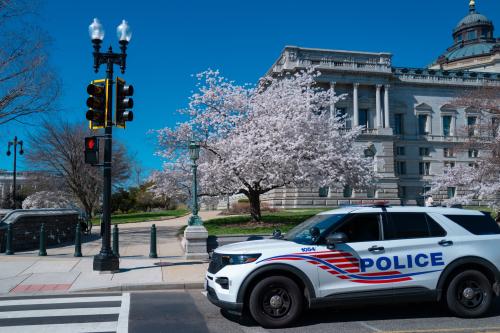

10:00 am EDT - 11:30 am EDT
Past Event
10:00 am - 11:30 am EDT
1775 Massachusetts Avenue N.W.
Washington, DC
20036
Policing in America has been criticized greatly over the past several years by the general public, politicians, and the media. Most of these criticisms have centered on the increase in officer-involved shootings, particularly involving Black Americans. Policy solutions to improve police-civilian relations, increase trust in policing, and reduce officer-involved shootings have centered on implicit bias trainings, virtual reality technology to improve decision-making, the advent of data science, extra equipment such as body-worn cameras, more transparency, and harsher officer sanctions. With increased scrutiny, however, there has been little direct attention on the experience of police officers as policy changes are being implemented.
On October 25, Governance Studies, the Race, Prosperity, and Inclusion Initiative, and the Center for Technology Innovation at Brookings hosted an event that focused more acutely on police officers and their daily experiences. Expert panelists addressed the strengths and weaknesses of data science and technological enhancements for the policing profession, the mental health of police officers, and policies to advance community policing, improve officer well-being, and reduce officer-involved shootings.
After the panel, a Q&A session followed.
Moderator

Panelist


Gabriel R. Sanchez, Edward D. Vargas, Daniel F. López-Cevallos, Carmen R. Valdez, Ana Luisa Oaxaca Carrasco
June 24, 2025

Hanna Love, Hannah Stephens
April 23, 2025

Stacy Hawkins, Andre M. Perry, Robert Puentes
April 23, 2025